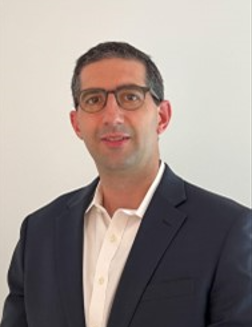Dr Zachary Solomon: Understanding Cardiothoracic Surgical Procedures
Dr Zachary Solomon: Understanding Cardiothoracic Surgical Procedures
Blog Article

Cardiothoracic surgery just like these performed by Dr Zachary Solomon has long been at the front of medical advancements, combining accuracy, talent, and engineering to deal with conditions of the center, lungs, esophagus, and other organs in the thorax. In the last several years, that field has observed progressive inventions and methods which have dramatically increased patient outcomes, recovery situations, and over all quality of life, based on Doctor Zachary Solomon.
The Evolution of Cardiothoracic Surgery
Cardiothoracic surgery has come quite a distance from their early days. The initial successful center function, performed in the late 19th century, put the foundation for an changing niche noted by rapid advances. By the mid-20th century, the development of the heart-lung machine permitted surgeons to do complicated open-heart procedures. Nowadays, the control keeps growing with continuing research and scientific innovations.
Minimally Invasive Surgery
One of the very most revolutionary breakthroughs in cardiothoracic surgery may be the introduction of minimally intrusive techniques. These techniques are often done through small incisions, lowering stress to your body and promoting quicker recovery. Some key minimally unpleasant methods include:
• Robotic-Assisted Surgery
• Video-Assisted Thoracoscopic Surgery (VATS
• Transcatheter Aortic Valve Replacement (TAVR
Image-Guided and Computer-Assisted Surgery
Sophisticated imaging technologies and computer-assisted techniques have somewhat increased the accuracy and protection of cardiothoracic procedures. Innovations in this area include:
Increased Recovery Practices
Advancements in perioperative attention have generated the progress of Enhanced Recovery After Surgery (ERAS) methods, which make an effort to improve preoperative, intraoperative, and postoperative care to improve recovery.
Future Instructions
The future of cardiothoracic surgery is promising, with continuing study into:
• Stem Cell Treatment: Exploring the possible of stem cells to repair and replenish damaged center tissues.
• Artificial Intelligence (AI): AI-driven analytics may assist in diagnosis, precise planning, and outcome prediction, ultimately causing more individualized and successful treatments.
• Nanotechnology: The applying of nanoparticles for targeted medicine supply and minimally intrusive treatment options.
Realization
Cardiothoracic surgeons like Dr Zachary Solomon Philadelphia remains to drive the limits of what's probable in medicine. With the constant progress of innovative techniques and systems, patients can look forward to safer techniques, smaller recoveries, and better over all outcomes. The relentless pursuit of superiority in that subject underscores the commitment to increasing the standard of living for people that have cardiothoracic conditions.
Report this page